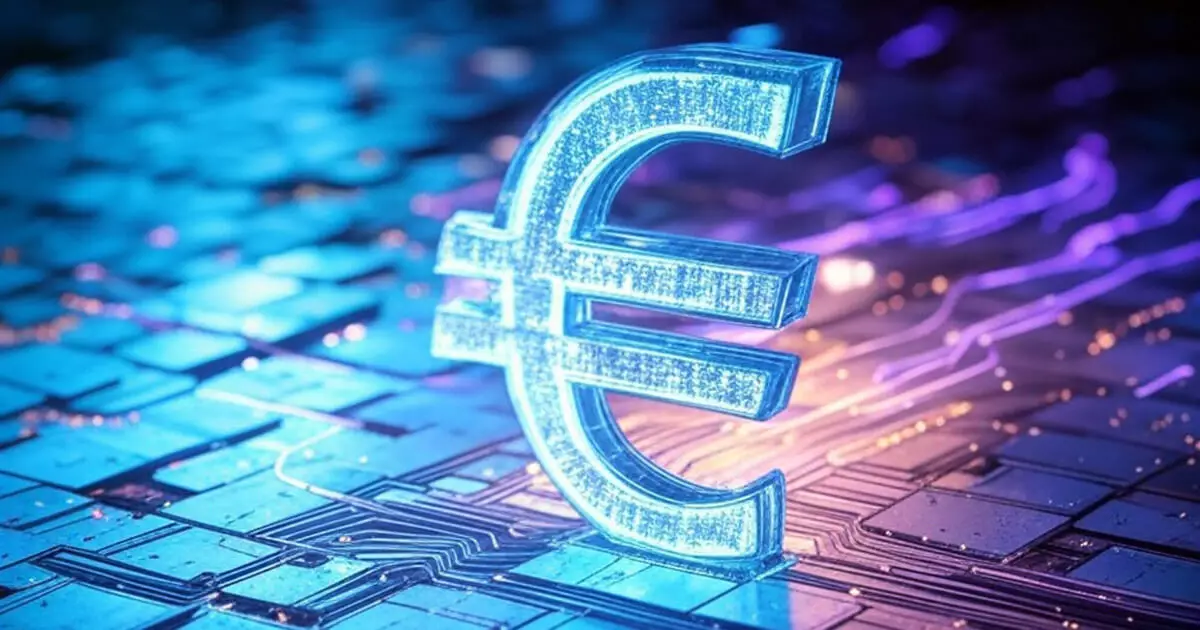The recent statements from Philip Lane, Chief Economist of the European Central Bank (ECB), underline a growing chorus among European leaders regarding the necessity of a digital euro. The increasing dependency on foreign payment systems operates not only as a financial weakness but reveals a deeper vulnerability in the face of global geopolitical shifts. To establish true financial sovereignty, Europe must reclaim its autonomy over monetary transactions. The evidence is unmistakable; reliance on US payment platforms like Visa and PayPal places European economies at the mercy of external market forces. A digital euro could rectify this, serving as a shield against becoming collateral damage in the ever-shifting landscape of international finance.
A Response to Stablecoins: Guarding Against Risks
Lane warns about the rising popularity of stablecoins, particularly those tethered to the US dollar. This trend presents a dual threat: first, it threatens to undermine the euro’s position as a viable currency for transactions within Europe, and second, it ushers in an era of currency impoverishment, where foreign entities control local economic exchanges. The digital euro offers a counterbalance, presenting itself as not just another payment method, but as a robust medium of exchange designed to thwart the encroachment of foreign stablecoins. The proposed digital currency illustrates a firmer commitment to preserving the integrity and independence of the eurozone.
Streamlining Payments: Unification over Fragmentation
Lane’s insistence on the digital euro also touches on an ongoing challenge within Europe’s financial system: fragmentation. Currently, the retail payment environment is chaotic, which stymies collaboration among banks and payment services. The development of a unified digital euro platform could streamline transactions, allowing for seamless exchanges across member states. This isn’t just a logistical improvement; it’s a necessary step to fortify the eurozone’s economic coherence in a world where regional powers are vying for dominance in digital finance. The digital euro could serve as a unifying force, fostering collaboration rather than competition among European financial institutions.
Adaptation to Change: Preparing for Future Challenges
The pace of technological change in finance is staggering. The ECB recognizes that remaining stagnant is not an option. Lane’s commentary signals a critical acknowledgment of the growing threat posed by unregulated digital currencies and their potential to disrupt traditional banking. Adopting a digital euro allows Europe to stay ahead of the curve, adapting its financial infrastructure to meet contemporary challenges. By championing a digital solution, the ECB could embrace innovation while regulating it, ensuring that Europe remains a leader in financial technology rather than a passive participant.
Bridging the Regulatory Gap: Proactive Measures Needed
Regulatory measures surrounding cryptocurrencies and stablecoins have lagged alarmingly behind their growth. As pointed out by ECB officials including François Villeroy de Galhau, the US’s rapid push for crypto adoption is pressing European leaders to act. Without such measures, Europe risks being swept up in a tide of instability driven by unchecked, non-bank financial entities. By implementing a digital euro, the European Central Bank can proactively establish a regulatory framework that not only secures consumer interests but also preserves the stability of the banking system, thereby protecting Europe’s economy from external disruptions.
In sum, the need for a digital euro is not merely a technological trend; it represents a foundational shift towards securing Europe’s financial autonomy while equipping its economies for a future fraught with uncertainty. Such a step is not just beneficial; it is essential for safeguarding Europe’s financial future in a volatile geopolitical landscape.

